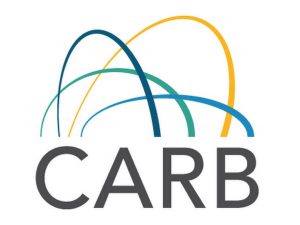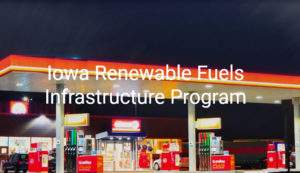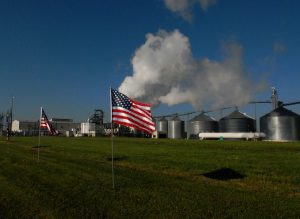 It was not long ago that the prevailing belief in this country was that ethanol could not make it past 10 percent of the nation’s gasoline. That so-called “blend wall” was officially crushed in 2016 – and now ethanol has moved the needle another percentage point, according to the latest data from the U.S. Energy Information Administration.
It was not long ago that the prevailing belief in this country was that ethanol could not make it past 10 percent of the nation’s gasoline. That so-called “blend wall” was officially crushed in 2016 – and now ethanol has moved the needle another percentage point, according to the latest data from the U.S. Energy Information Administration.
Ethanol accounted for 11.06 percent of the nation’s gasoline in October, marking the first time in history that the monthly ethanol “blend rate” has topped 11 percent. The Renewable Fuels Association said the record-high blend rate reflects the expanding use of E15 and flex fuels like E85.
The 12-month average blend rate, which reflects longer-term trends, also hit a record of 10.48 percent in October. Expanding availability of E15 appears to be the driving factor in the blend rate increase, according to RFA. In Iowa, for example, E15 accounted for roughly 25 percent of total gasoline sales in November, virtually doubling since the start of 2025. And with E15’s legal approval in California in October, RFA is working with retailers in that state to make the more affordable blend available to Golden State drivers as soon as possible.
“The new data from EIA and the Iowa Department of Revenue provide clear evidence that ethanol is continuing to gain market share in the U.S. fuel market as American drivers increasingly choose lower-cost, cleaner-burning E15 and flex fuels like E85,” said RFA President and CEO Geoff Cooper. “The numbers also prove that the fictitious ‘blend wall’ is nothing but an imaginary barrier created by those who oppose American-made renewable fuels produced from American-grown crops.”
In the year-end Ethanol Report podcast, Cooper noted that expanding sales of E15 in 2025 were facilitated, in part, by the Trump Administration’s timely issuance of emergency fuel waivers allowing E15 sales to continue throughout the summer months, after Congress failed to pass legislation allowing nationwide year-round sales of E15.
“We did sell a record amount of E15 in 2025, but that volume was far below what it could have been had Congress passed that legislation last December,” said Cooper. “You know, we had to rely on EPA again to issue emergency waivers in 2025 to allow retailers to continue selling E15 through the summer months. And obviously, it’s never a guarantee that we’re going to get those emergency waivers. They always come at the last minute. And they did again in 2025. It was the very end of April, just a few days before the summer gasoline season started, when we got word from EPA that they would be again issuing those emergency waivers. And those are helpful to retailers that are already selling E15 because they can continue selling that product through the summer. But it’s not helpful in bringing new retailers and new markets and new businesses into the E15 space.”
Cooper also underscored the importance of quickly finalizing EPA’s proposed 2026-27 renewable volume obligations, which include the highest-ever renewable fuel blending requirements. “The continued expansion of E15 depends, in large part, on EPA’s pending action to finalize robust RFS volumes for 2026-27 and full reallocation of any small refinery exemptions granted for 2023 and later compliance years,” Cooper said. “Indeed, EIA’s data clearly show that the average ethanol blend rate actually reversed course and fell when EPA granted SREs en masse in the 2018-19 timeframe and failed to reallocate the lost volume. Farmers, ethanol producers, and consumers simply can’t afford a repeat of the demand destruction we experienced due to SREs seven years ago.”
Based on EIA’s latest short-term energy outlook, maintaining an average blend rate of 11 percent for a full year would equate to 15 billion gallons of domestic ethanol consumption.
Cooper addresses E15, the RVO proposal, and the need to reallocate RINS from granted small refinery exemptions in the latest edition of The Ethanol Report.
Ethanol Report 12-30-25 33:32
 Corteva and bp this week announced the launch of Etlas, a joint venture to produce oil from crops – including canola, mustard and sunflower – for use in the production of biofuels like sustainable (or synthetic) aviation fuel (SAF) and renewable diesel (RD).
Corteva and bp this week announced the launch of Etlas, a joint venture to produce oil from crops – including canola, mustard and sunflower – for use in the production of biofuels like sustainable (or synthetic) aviation fuel (SAF) and renewable diesel (RD). 










